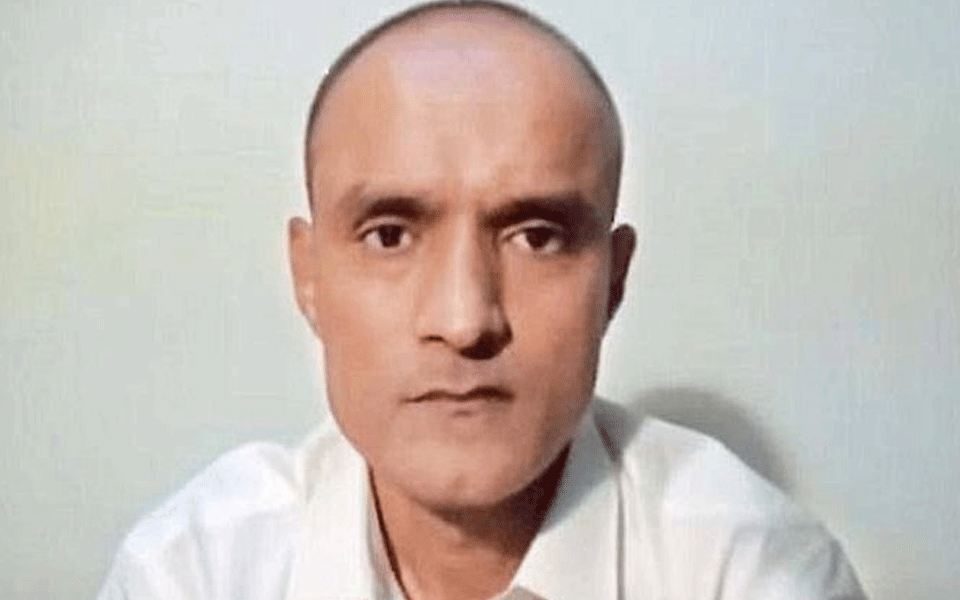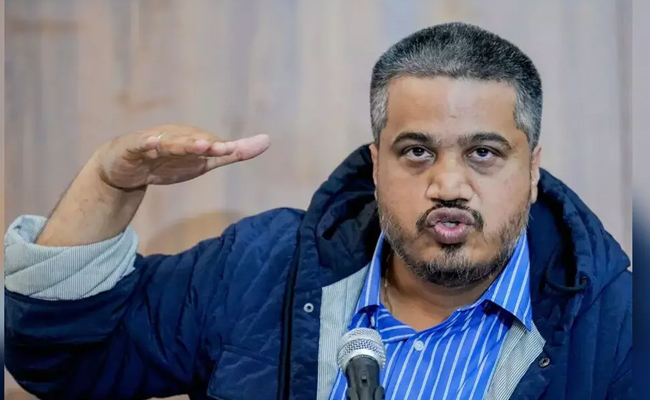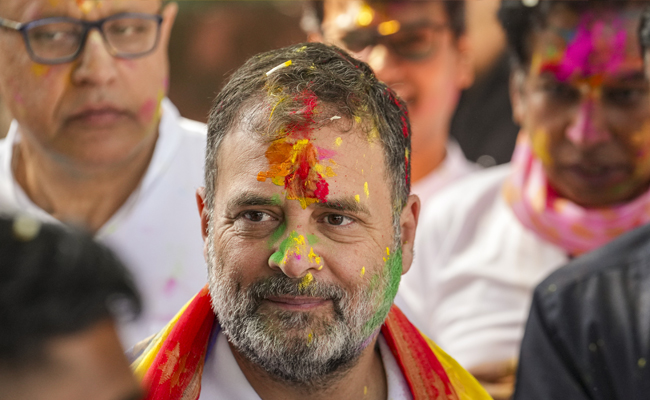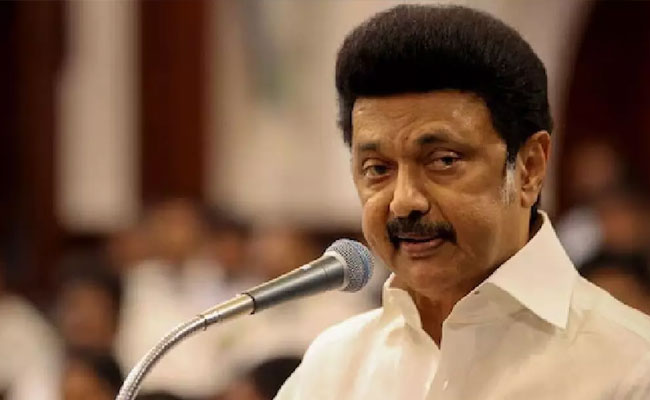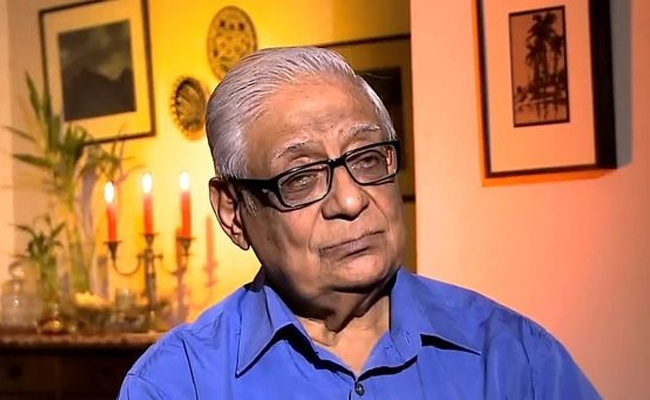The Hague, Jul 16: The International Court of Justice will deliver on Wednesday its verdict in a case relating to Indian national Kulbhushan Jadhav, whose death sentence by a Pakistani military court based on an "extracted confession" has been questioned by India.
Jadhav, 49, a retired Indian Navy officer, was sentenced to death by the Pakistani military court on charges of "espionage and terrorism" after a closed trial in April 2017. His sentencing evoked a sharp reaction in India.
The ICJ, in a statement early this month, said a public sitting will take place at 3 pm (6.30 pm IST) on July 17 at the Peace Palace in The Hague, during which top judge Abdulqawi Ahmed Yusuf will read out the verdict.
Pakistan Foreign Office (FO) spokesperson Muhammad Faisal last week said his country cannot "prejudge" the decision of the ICJ in the Jadhav's case. "We cannot prejudge the judgment," he said.
He, however, said that Pakistan has fully contested the case before the ICJ.
India moved the ICJ in May 8, 2017 for the "egregious violation" of the provisions of the Vienna Convention by Pakistan by repeatedly denying New Delhi consular access to Jadhav.
A 10-member bench of the ICJ, which was set up after World War II to resolve international disputes, on May 18, 2017 had restrained Pakistan from executing Jadhav till adjudication of the case.
A four-day public hearing in the high-profile case took place in February amidst heightened tensions between India and Pakistan following one of the worst terror attacks in Jammu and Kashmir by Pakistan-based Jaish-e-Mohammed terror group that killed 40 CRPF soldiers on February 14.
During the hearing in ICJ, both India and Pakistan submitted their detailed pleas and responses.
India based its case on two broad issues breach of Vienna Convention on consular access and the process of resolution.
Harish Salve, who was representing India in the case, questioned the functioning of Pakistan's notorious military courts and urged the top UN court to annul Jadhav's death sentence, which is based on an "extracted confession".
In his submission in the ICJ on the last day of the hearing, Pakistan's counsel Khawar Qureshi said, "India's claim for relief must be dismissed or declared inadmissible."
Pakistan claims that its security forces arrested Jadhav from restive Balochistan province on March 3, 2016 after he reportedly entered from Iran.
However, India maintains that Jadhav was kidnapped from Iran where he had business interests after retiring from the Navy.
Pakistan had rejected India's plea for consular access to Jadhav at the ICJ, claiming that New Delhi wants the access to get the information gathered by its "spy".
However, Pakistan facilitated a meeting of Jadhav with his mother and wife in Islamabad on December 25, 2017.
Let the Truth be known. If you read VB and like VB, please be a VB Supporter and Help us deliver the Truth to one and all.
Mumbai (PTI): NCP (SP) MLA Rohit Pawar on Wednesday alleged that someone was trying to save VSR Ventures in connection with the plane crash that killed Maharashtra deputy chief minister Ajit Pawar, and claimed that the AAIB preliminary probe vindicated the doubts earlier raised by him.
He also accused VSR company of indulging in several grave lapses in the past.
The Learjet 45 aircraft, operated by VSR Ventures, crashed near the Baramati air strip in Pune district on January 28, killing Pawar and four others.
In its 22-page preliminary report on the VSR Venture's Learjet plane crash, the Aircraft Accident Investigation Bureau (AAIB) said the visibility at the time of the crash was below the required level. It also flagged about fading marks on the runway and presence of loose gravels on the runway surface.
Pawar said, "I am not against VSR or the Directorate General of Civil Aviation (DGCA). Ajitdada was travelling in a VSR aircraft. Unless we go into the depth of every aspect, we will not know the truth. But someone is trying to save this company. The doubts we had raised have been proven correct in the inquiry report."
He also claimed that the AAIB report contained discrepancies, including mentioning Baramati as a district, and questioned how seriously the probe had been conducted.
Pawar, who has been regularly holding press conferences to raise issues concerning the Baramati plane crash, also contested the report's conclusion that the aircraft hit trees before crashing.
"The report says the aircraft struck trees and then fell. But there are no trees at that spot. There is only a small bush which the aircraft did not even touch. What is stated in the report about hitting trees is incorrect," he said.
Pawar further alleged that VSR Ventures had displayed irresponsibility on multiple occasions, citing an incident involving the then chief minister Eknath Shinde's Davos visit on January 20, 2023.
He claimed that the aircraft carrying Shinde had entered Iranian and Iraqi airspace without overflight permission, following which fighter jets from the two countries allegedly warned of action, forcing a change in route from Bahrain to Zurich.
"There have been several such grave lapses by VSR," he said.
Pawar demanded to know from where VSR Ventures derived its "audacity", and sought details about its investors and officials, though he added that he was not personally concerned with who they were.
Drawing a comparison, he said the Central Bureau of Investigation (CBI) had taken over the probe into actor Sushant Singh Rajput's death within two days, whereas a month had passed since the Baramati crash without a similar action.
He claimed that VSR Ventures had two directors and three shareholders, and that there were eight common names across two related companies.
He further alleged that the owner of VSR was related to the Union Civil Aviation Minister and questioned why the company, though registered in Delhi, had made high-value investments in Jubilee Hills (upscale area in Hyderabad) at rates allegedly Rs 17 crore above the market price.
The MLA representing the Karjat-Jamkhed assembly constituency in Ahilyanagar district also raised concerns about the legal and institutional framework of the AAIB under the 2017 rules, claiming it was neither a statutory nor an autonomous body and remained answerable to the secretary and the minister, besides being attached to the DGCA.
"There is no independent investigative agency," he alleged.

